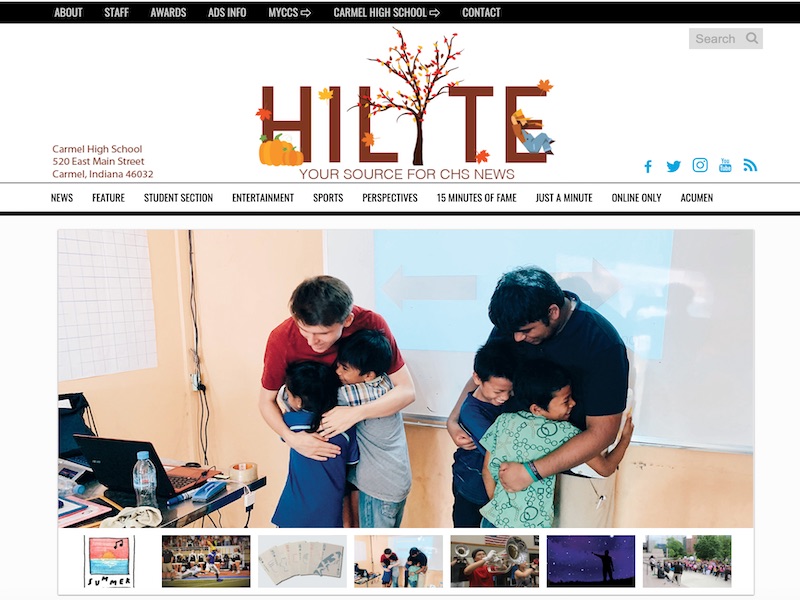News Websites Fundamentals Explained
News Websites Fundamentals Explained
Blog Article
Some Of News Websites
Table of ContentsGetting The News Websites To Work7 Easy Facts About News Websites ExplainedHow News Websites can Save You Time, Stress, and Money.See This Report on News WebsitesSome Known Details About News Websites
It was down in the UK and Brazil however up a few other nations, such as Greece, Bulgaria, and Poland (News Websites). This year, for the very first time, we inquired about the different ways that individuals prevent the news and found that around half of avoiders (53%) were trying to do so in a broad-brush or periodic way for example, by switching off the radio when the news came on, or by scrolling past the information in social networksYou claimed that you attempt to actively prevent news.

I'm possibly choosing to learn more light-hearted stories than I used to at the minute. M, 51, UK Turning my back on news is the only means I feel I can cope occasionally. I need to consciously make the initiative to avert for the sake of my very own mental health and wellness.
Not known Incorrect Statements About News Websites
Selective avoidance of Ukraine information was highest in most of the countries closest to the dispute, enhancing findings from our added survey in 2014, quickly after the war had actually begun. Our data may not suggest an absence of rate of interest in Ukraine from close-by nations however instead a desire to handle time or secure psychological health from the extremely actual horrors of war.
Comparing Finland with a politically polarised nation such as the United States (see following graph) that is much less affected by the war, we discover a really various pattern of subject evasion. In the USA, we find that consumers are more probable to stay clear of topics such as national politics and social justice, where discussions over issues such as gender, sexuality, and race have ended up being extremely politicised.
American national politics are rather poisonous these days. I discover sometimes that I have to disconnect from stories that just make me angry. F, 61, United States For some people, bitter and dissentious political discussions are a factor to switch off information completely, yet for some political upholders, evasion is commonly concerning obstructing out viewpoints you do not wish to hear.

Get This Report about News Websites
Some are seeking to make information much more obtainable for hard-to-reach teams, widening the news program, appointing even more motivating or favorable news, or embracing useful or solutions journalism that provide people a sense of hope or personal firm. In our study this year, we asked participants concerning their interest in these various strategies.
This clarifies why stories like Ukraine or nationwide politics execute well with news regulars yet can at the very same time turn much less interested customers away (News Websites). Discerning avoiders from this source are much less curious about all types of information than non-avoiders however in relative terms look these up they do appear to be more thinking about favorable or solutions-based information

Some Of News Websites
2023). This might be real in the minute, yet over time it appears to be leaving many individuals empty and much less pleased, which check my site might be weakening our link with and trust fund in the news. Throughout markets, general rely on news (40%) and count on the resources individuals utilize themselves (46%) are down by a further 2 portion points this year.
With the rear-view mirror, the COVID-19 depend on bump is clearly noticeable in the complying with graph, though the direction of traveling later on has actually been blended. In many cases (e.g. Finland), the trust fund increase has actually been maintained, while in others the upturn looks even more like a blip in a story of ongoing long-lasting decrease.
Some of the highest possible reported levels of media objection are located in countries with highest degree of mistrust, such as Greece, the Philippines, the USA, France, and the United Kingdom. The most affordable levels of media criticism are often in those with higher degrees of trust, such as Finland, Norway, Denmark, and Japan.
Indicators on News Websites You Should Know
This year we asked participants concerning their choices for message, sound and video clip when taking in information online. Usually, we locate that the bulk still favor to review the information (57%), instead than watch (30%) or pay attention to it (13%), however younger people (under-35s) are more probable to listen (17%) than older teams.
Behind the standards we discover considerable and unusual nation differences. In markets with a strong reading practice, such as Finland and the UK, around 8 in 10 still choose to check out on-line information, however in India and Thailand, around four in ten (40%) claim they like to enjoy news online, and in the Philippines that proportion mores than fifty percent (52%).
Report this page